People
Members of the Surrey Morphology Group collaborate with researchers from institutions in every continent and work closely with a network of visiting academics with whom we have longstanding international research links.
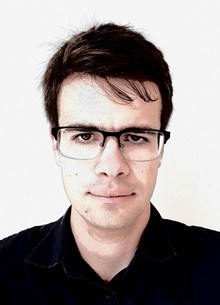
Martin Alldrick
m.alldrick@surrey.ac.uk
Martin Alldrick is a doctoral candidate at the Surrey Morphology Group with a background in Slavonic and Ibero-Romance languages. He is currently investigating the processes affecting the resolution or maintenance of overabundant paradigmatic cells. His thesis aims to provide a comparative analysis of the historical development of morphological overabundance in Slavonic nouns.
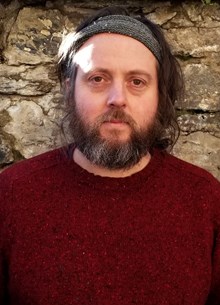
Dr Cormac Anderson
cormac.anderson@surrey.ac.uk
Dr Cormac Anderson researches the typological diversity and evolutionary dynamics of phonological patterns and the ways in which phonology and morphology interact in synchronic grammars. He has also worked on lexical typology and on tools and methodologies for cross-linguistic comparison. He is a specialist in the Irish language
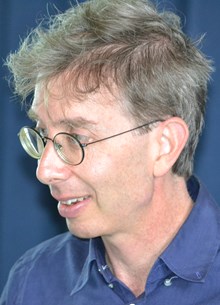
Prof Matthew Baerman
m.baerman@surrey.ac.uk
Prof Matthew Baerman's research concentrates on unusual or overlooked inflectional systems, and the implications these have for our understanding of the way language works.
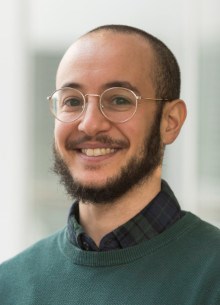
Dr Sacha Beniamine
s.beniamine@surrey.ac.uk
Dr Sacha Beniamine is a British Academy Newton International Fellow. Starting from large inflected lexicons, his project aims to write computational tools to segment inflected words and study variation in exponence across languages using quantitative Canonical Typology. His research interests include inflection classes, morpho-phonology and language change.
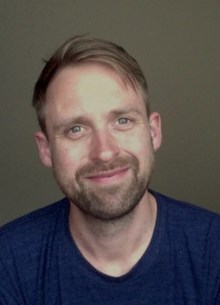
Dr Oliver Bond
o.bond@surrey.ac.uk
Dr Oliver Bond researches the ways in which variation can form the empirical base for developing linguistic theory. His theoretical work primarily concerns how the various components of grammar interface, with a focus on the relationship between morphology, syntax and the lexicon. His language expertise include the Eleme language of Rivers State, Nigeria and the Tamangic languages spoken in Manang District, Nepal.
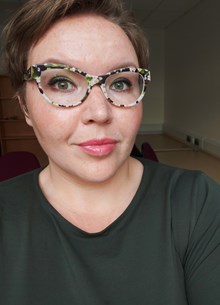
Dr Nadežda Christopher
n.christopher@surrey.ac.uk
Dr Nadežda Christopher is a British Academy Postdoctoral Fellow working on morpho-syntactic micro-variation and its relation with mutual intelligibility between three Turkic languages of Central Asia – Kazakh, Uzbek, Karakalpak. Nadezda’s previous work includes fieldwork in Kazakhstan, research on the Kazakh information structure, Russian negation and negative polarity items.
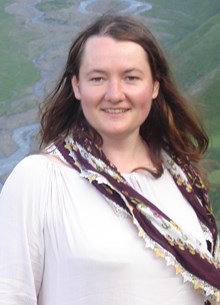
Dr Marina Chumakina
m.chumakina@surrey.ac.uk
Dr Marina Chumakina is an expert in Archi, a Nakh-Daghestanian language spoken in the Caucusus. Her recent research focuses on the challenges that Archi morphosyntax poses for theoretical models of syntax, specifically to what extent the existing infrastructures of HPSG, LFG and Minimalism can adequately account for the highly complex agreement system present in the language.
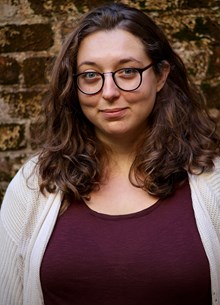
Dr Maria Copot
m.copot@surrey.ac.uk
Dr Maria Copot is interested in the internal organisation of the mental lexicon, and in large-scale empirical evidence as the basis for morphological theory. Their recent research centers on understanding and modeling the nature of morphological categories, and the multidimensional relationships that exist between them.
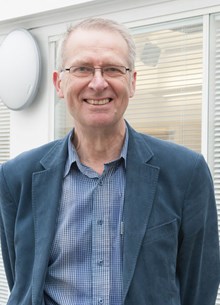
Prof Greville G. Corbett
g.corbett@surrey.ac.uk
Prof Greville G. Corbett is best known for his research on grammatical gender, number, agreement and colour terms as well as typological studies into various aspects of morphology including periphrasis, deponency and defectiveness. He is a major proponent of Network Morphology, founder of Canonical Typology and an expert in Slavonic languages.
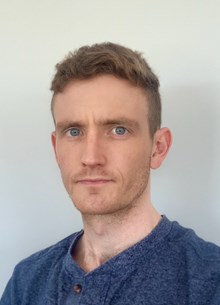
Dr Tom Ennever
t.ennever@surrey.ac.uk
Dr Tom Ennever is a postdoctoral researcher investigating variation and language change in Kukatja, an Australian Aboriginal language. His research interests span phonology, language documentation, semantic and structural typology, as well as the interaction of language, culture and cognition. Underpinning the breadth of this research is his long-term collaboration with members of the Balgo community with whom he has worked since 2016 on various projects at the intersection of language, art and land management.
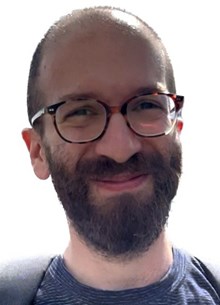
Dr Dávid Győrfi
david.gyorfi@surrey.ac.uk
Dr Dávid Győrfi is a specialist in Turkic languages and Tense-Aspect-Modality expressions. He is researching the evolution of co-headed verb systems across the world, with an emphasis on Turkic, Dravidian, and Non-Pama-Nyungan languages, within the Leverhulme-funded project entitled “Analogical growth of grammatical systems”.
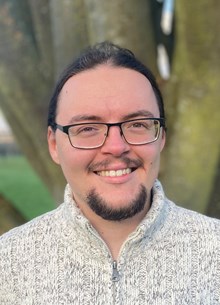
John Hutchinson
j.g.hutchinson@surrey.ac.uk
John Hutchinson is a PhD student investigating patterns of change in morphological paradigms, with a particular focus on the coalescence of multiple independent words into single forms. He has a background in typological, phonological and historical linguistics and is particularly interested in approaching issues in morphology from these perspectives
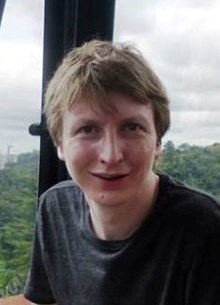
Dr Steven Kaye
s.kaye@surrey.ac.uk
Dr Steven Kaye is researching the behaviour of Nakh-Daghestanian ‘external agreement’, a phenomenon which is typologically unusual but extremely widespread in this family. He has previously worked on the Iranian language Northern Talyshi (Azerbaijan) and on grammaticalization and non-canonical verb morphology in Italic/Romance.
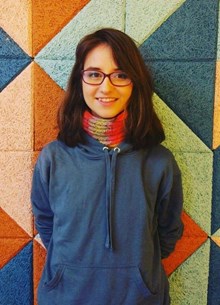
Dr Masha Kyuseva
m.kyuseva@surrey.ac.uk
Dr Maria (Masha) Kyuseva’s research interests lie in the domains of lexical and morphological typology. Her current project explores patterns of case marking in the dialects of eastern Serbia and western Bulgaria. Dr Kyuseva previously worked on signs denoting size and shape of objects in Russian Sign Language, on computational applications in lexical typology, and on locative predication in North-West Caucasian languages (Adyghe and Kabardian).
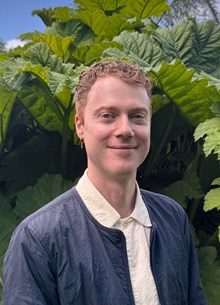
Dr Peter Nyhuis
p.nyhuis@surrey.ac.uk
Dr Peter Nyhuis is a postdoctoral researcher interested in accounting for phonological generalisations in the context of complex morphological systems. He is a specialist in the Gunwinyguan language Wubuy (aka Nunggubuyu), spoken in a remote part of northern Australia. He has also previously worked with speakers of Australian Aboriginal languages to develop bilingual school programs.

Prof Erich Round
e.round@surrey.ac.uk
Prof Erich Round is the leader of the Surrey Morphology Group. He is a British Academy Global Professor. He is an expert in the languages of Australia and the evolutionary modelling of grammatical features of language. His current research develops models of the evolution of morphological paradigms and promotes the demystification of mathematical modelling in historical linguistics.

Dr Helen Sims-Williams
h.sims-williams@surrey.ac.uk
Dr Helen Sims-Williams’ research investigates the dynamics of morphological change. Her current project aims to produce a statistical model of analogical change in inflectional morphology. Previously she has worked on the typology of inflection loss, computational modelling of the evolution of linguistic complexity, and on morphological change in Greek.

Jurriaan Wiegertjes
j.wiegertjes@surrey.ac.uk
Jurriaan Wiegertjes is a PhD student investigating systems nominal categorization in Northwest Amazonian languages. His main research interests are in linguistic description, areal typology and diachrony, and he approaches grammatical phenomena from these perspectives. He has experience with agreement, serial verbs and Tukanoan linguistics. He also works on Bará-Váímajã for which he was awarded an ELDP-MPI Glottobank fieldwork grant (GLB0016).
Former members and associated staff
Former Members
- Prof Dunstan Brown
- Dr Enrique Palancar
- Dr Julia Barron
- Dr Noel Brackney
- Dr Maris Camilleri
- Dr Scott Collier
- Penny Everson
- Dr Timothy Feist
- Dr Magdalena Fialkowska
- Dr Antonio Fortin
- Dr Norman Fraser
- Dr Borja Herce
- Prof Andrew Hippisley
- Dr Anna Kibort
- Dr Emily Lindsay-Smith
- Dr Alison Long
- Lisa Mack
- Dr Stephen Mann
- Dr Katarzyna Marchewka
- Prof Paul Marriott
- Dr Irina Monich
- Dr Bill Palmer
- Dr Kristian Roncero
- Dr Serge Sagna
- Dr Carole Tiberius
- Dr Claire K. Turner
Visiting Staff
- Dr Patricia Cabredo Hofherr (Paris)
- Dr Mae Carroll (Melbourne)
- Prof Nick Evans (Australian National University)
- Prof Sebastian Fedden (University Paris 3, LACITO)
- Dr Michael Franjieh
- Dr Alexander Krasovitsky (Oxford)
- Dr Jérémy Pasquereau (CNRS, Laboratoire de Linguistique de Nantes)
- Dr Tatiana Reid
- Prof Greg Stump (Kentucky)
- Prof Anna Thornton (L'Aquila)

